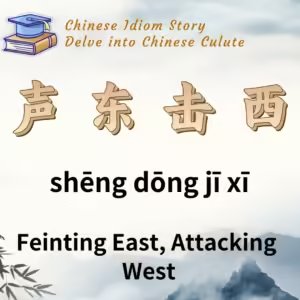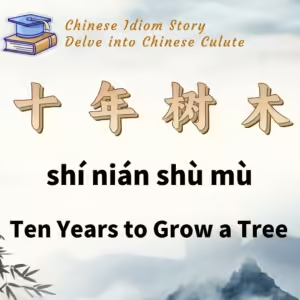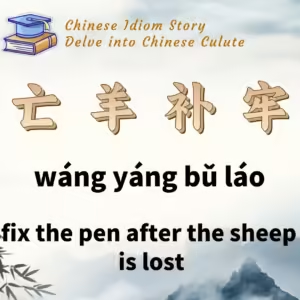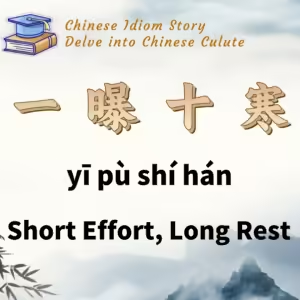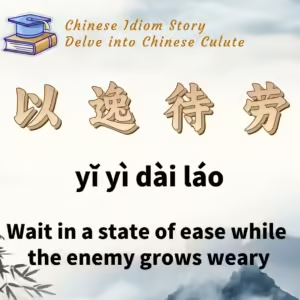
Chinese Idiom: 少壮不努力,老大徒伤悲 (Shao Zhuang Bu Nu Li, Lao Da Tu Shang Bei)
English Translation: If you don’t work hard in your youth, you’ll regret it in your old age
pīn yīn: shào zhuàng bù nǔ lì, lǎo dà tú shāng bēi
Idiom Meaning: This idiom encourages young people to make the most of their time and work hard while they are still young. It emphasizes that if one fails to seize opportunities and exert effort during their youth, they will only feel sorrow and regret when they grow old.
Historical Source: Han Dynasty, The Long Song (《长歌行》) by the Music Bureau (乐府)
Idiom Story:
In the Han Dynasty, the Music Bureau (Yuefu, 乐府) played a significant role in the creation of poetry, especially folk songs. The term “Yuefu” originally referred to a government office responsible for collecting folk songs and creating music for various ceremonial and festive occasions. Over time, it became the name of a specific type of poetry.
The Long Song (《长歌行》) is one of the most famous Yuefu poems, urging people to cherish time and make the most of their youth. The poem is composed of ten lines, with the following excerpt:
青青园中葵,朝露待日晞。
阳春布德泽,万物生光辉。
常恐秋节至,焜黄华叶衰。
百川东到海,何时复而归?
少壮不努力,老大徒伤悲。
The meaning of the poem is as follows: The greens in the garden thrive under the nourishment of morning dew and sunlight. Not only do the greens flourish, but all things in the world grow vibrantly due to the warmth and blessings of spring. However, one must always be mindful that the prosperous times will eventually give way to the decline and withering of autumn. Just as the rivers flow eastward into the sea and never return, time once lost will never come back. Therefore, one must work hard during their youth, for if they wait until old age, their regret and sorrow will be in vain.

